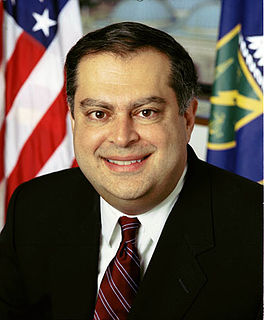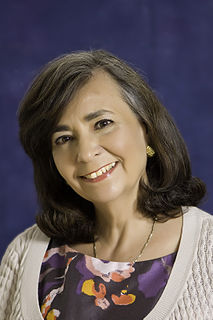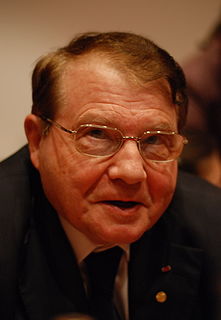A Quote by Pope Paul VI
The transmission of human life is a most serious role in which married people collaborate freely and responsibly with God the Creator.
Related Quotes
We could say that the human race is a great coauthorship in which we are collaborating with God and nature in the making of ourselves and one another. From this there is no escape. We may collaborate either well or poorly or we may refuse to collaborate, but even to refuse to collaborate is to exert an influence and to affect the quality of the product. This is only a way of saying that by ourselves we have no meaning and no dignity; by ourselves we are outside the human definition, outside our identity.
The fundamental idea which defines a human being as a Muslim is the declaration of faith: that there is a creator, whom we call God - or Allah, in Arabic - and that the creator is one and single. And we declare this faith by the declaration of faith, where we... bear witness that there is no God but God.
The relationship we have with God is not the same over a life; sometimes, as with human relationships, it goes through bad patches and sometimes it becomes very intense. It is a terrifying thing to have a relationship with one's creator, to spend one's life so that one is trying to converge with one's creator seems an extraordinarily difficult and sublime thing. But at the same time it's extremely simple. One of the things which perpetually amazes me is that at any moment or any day, anyone who is alive can talk with the creator of the cosmos.
For Calvin, the creation reflects its Creator at every point. Image after images flashed in front of our eyes, as Calvin attempts to convey the multiplicity of ways in which the creation witnesses to its Creator: it is like a visible garment, which the invisible God dons in order to make himself known; it is like a book in which the name on the Creator is written as its author; it is like a theater, in which the glory of God is publicly displayed; it is like a mirror, in which the works and wisdom of God are reflected.
Subsidiarity is the principle that government works best most responsibly and responsively when it is closest to the people it serves and the needs it addresses. Fiscal accountability is the principle that institutions collecting and disbursing taxes work most responsibly when they are transparent to those providing the money.
You hear a lot about God these days: God, the beneficent; God, the all-great; God, the Almighty; God, the most powerful; God, the giver of life; God, the creator of death. I mean, we're hearing about God all the time, so we better learn how to deal with it. But if we know anything about God, God is arbitrary.
What could define God, [is thinking of God] as the embodiment of the laws of nature. However, this is not what most people would think of that God. They made a human-like being with whom one can have a personal relationship. When you look at the vast size of the universe and how insignificant an accidental human life is in it, that seems most impossible.
The test of the life of a saint is not success, but faithfulness in human life as it actually is. We will set up success in Christian work as the aim; the aim is to manifest the glory of God in human life, to live the life hid with Christ in God in human conditions. Our human relationships are the actual conditions in which the ideal life of God is to be exhibited.
The twenty-first century will be a time of awakening, of meeting the creator within. Many beings will experience oneness with God and with all life. This will be the beginning of the golden age of the new human, of which it has been written; the time of the universal human, which has been eloquently described by those with deep insight among you.
Is a Christian- one who communicates daily with the Creator- to divorce himself from the things God created and intended man to have, and which demonstrate the fact that man has been made in the image of God? In other words, are we who have been made in the image of our creator to be less creative than those who do not know the Creator? The Christian should have more vividly expressed creativity in his daily life.






































